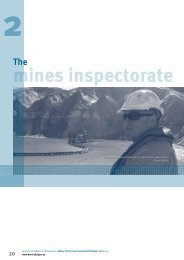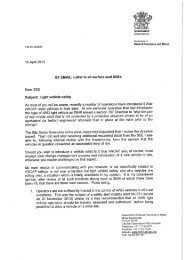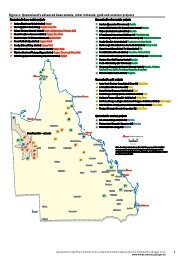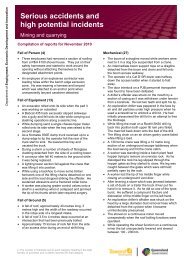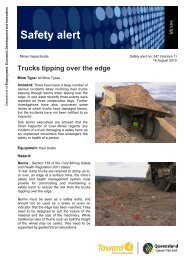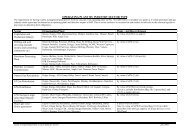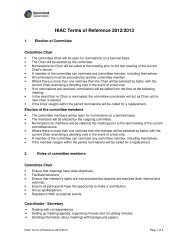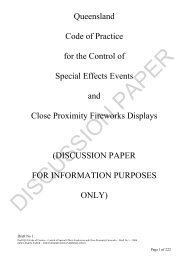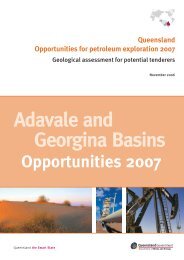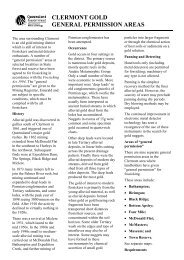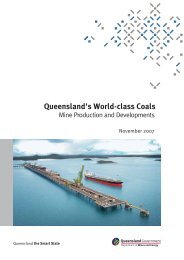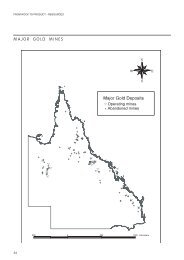State Planning Policy 2/07 Guideline - Queensland Mining and Safety
State Planning Policy 2/07 Guideline - Queensland Mining and Safety
State Planning Policy 2/07 Guideline - Queensland Mining and Safety
You also want an ePaper? Increase the reach of your titles
YUMPU automatically turns print PDFs into web optimized ePapers that Google loves.
8<br />
Overriding community benefit<br />
5.8 For the purposes of this SPP, development provides an overriding community benefit<br />
when it is demonstrated that the development would result in social, economic or<br />
ecological benefits for the community that would outweigh the potential loss of the<br />
extractive resources on the development site to the community. Circumstances where<br />
an incompatible development could provide an overriding benefit are those that would<br />
significantly—<br />
(a) improve the community’s access to essential services;<br />
(b) increase long-term employment opportunities; or<br />
(c) facilitate synergies with existing activities in the vicinity.<br />
5.9 If development would restrict or prevent extractive industry, the social, economic <strong>and</strong><br />
ecological implications of using alternative sources of extractive resources should be<br />
assessed. This assessment should include the effects of transporting extractive<br />
resources from other sources, including the effects on—<br />
(a) amenity in the vicinity of the route used to transport the extractive materials;<br />
(b) costs of extractive materials for building construction <strong>and</strong> infrastructure;<br />
(c) pollution levels from increased exhaust emissions;<br />
(d) road maintenance costs;<br />
(e) transport costs for extractive industry; <strong>and</strong><br />
(f) transport safety <strong>and</strong> efficiency.<br />
Development cannot be reasonably located elsewhere<br />
5.10 Extractive industry does not have flexible location options because the extractive<br />
resources are fixed, finite <strong>and</strong> are limited in occurrence. Other uses (in particular<br />
residential uses) are unlikely to override the long-term availability of an extractive<br />
resource because they have more flexible location options.<br />
5.11 An assessment of alternative premises for development should amongst other<br />
matters—<br />
(a) identify the location requirements of the development, including physical site<br />
characteristics, access, <strong>and</strong> servicing;<br />
(b) identify premises that meet these location requirements;<br />
(c) evaluate the identified premises in terms of the planning scheme outcomes (or<br />
adjoining planning scheme if suitable l<strong>and</strong> is identified in an adjoining local<br />
government area); <strong>and</strong><br />
(d) assess the respective ecological, social, or economic implications of each alternative<br />
premises.<br />
<strong>State</strong> <strong>Planning</strong> <strong>Policy</strong> 2/<strong>07</strong> <strong>Guideline</strong>



